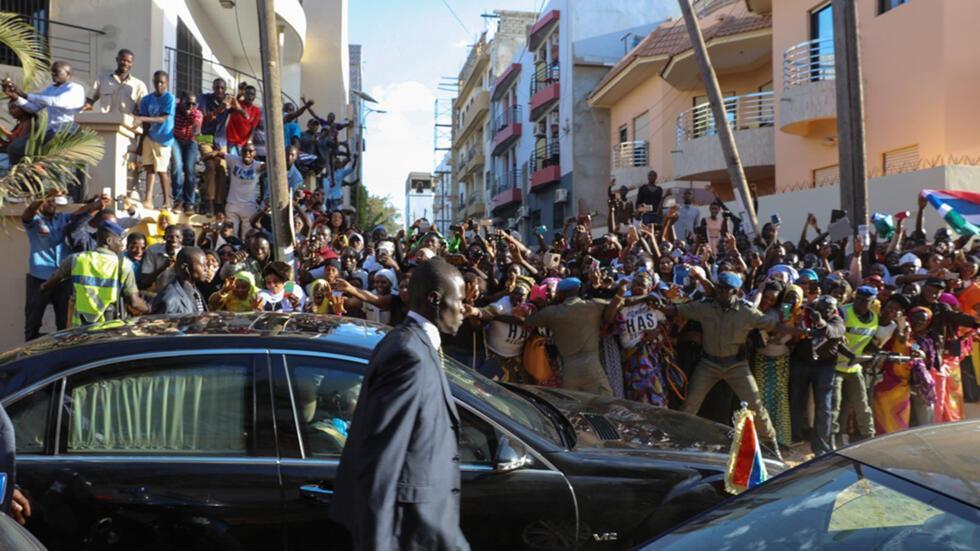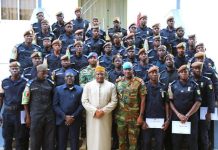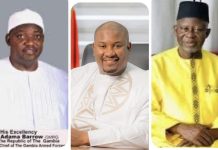Africa-Press – Gambia. The new nationwide opinion poll commissioned by Gambia Participates and conducted by CepRass has painted a complex picture of voter sentiment ahead of the 2026 presidential election, exposing deep skepticism toward both incumbent President Adama Barrow and veteran opposition figure Ousainu ANM Darboe, while signaling rising interest in younger challengers such as Talib Bensouda.
The survey—conducted in July 2025 across all 53 constituencies and eight Local Government Areas (LGAs)—interviewed 1,556 Gambians aged 18 and above using stratified random sampling and face-to-face digital interviews. With less than 18 months before Gambians head to the polls, the findings provide one of the clearest snapshots yet of the shifting political landscape.
The poll’s data on age-based perceptions of who stands the best chance of winning the 2026 election presents a complex picture of a fragmented electorate. President Barrow consistently holds the highest perceived chance of winning across all age demographics, with his support peaking among the 35-44 age group at 10%.
However, the survey highlights a generational shift in voter interest. Among the youngest voters (18-24), support is widely fragmented, with no single candidate holding a dominant position. This suggests that this demographic is still undecided and potentially unaligned with traditional political figures. In the 25-34 age group, a key challenger emerges: Talib Bensouda. While Barrow maintains a lead with 9%, Bensouda follows closely with 7%, indicating that younger voters are more receptive to emerging leaders.
The poll also notes a shift in support among older voters. In the 55+ age group, President Barrow’s perceived chances of winning decline to 5%, while Talib Bensouda and Mama Kandeh gain notable mentions. This trend suggests that while Barrow’s support is broad, it may be weakening at the generational extremes, potentially opening a window of opportunity for new challengers.
The survey’s findings on gender dynamics reveal a stark contrast in how men and women view the political race. Among male respondents, President Barrow is seen as the overwhelming favorite, with 22% of men believing he stands the best chance of winning. His closest male challengers, Bensouda and Mama Kandeh, are seen as distant runners-up with 16% and 11% respectively.
Conversely, the female electorate appears far more divided. While President Barrow still leads with 9% of the female vote, he is not perceived with the same level of confidence as he is by men. Talib Bensouda, in particular, shows strong appeal among women, registering 13% of their support, placing him ahead of Barrow. Veteran opposition leader Ousainu Darboe also registers significant backing among women at 7%. This data indicates that women are more receptive to alternative candidates and that President Barrow’s dominance may be more rooted in male confidence.
The Gambia Participates poll underscores that the 2026 election is far from a foregone conclusion. While President Barrow currently holds the strongest perceived chance of winning, the data reveals a public that is receptive to change and a political field with strong, emerging contenders. The survey’s findings on the significant support for a coalition among younger voters and the growing appeal of figures like Talib Bensouda indicate a shift in the political narrative. The electorate’s high proportion of undecided voters signals a volatile environment where public sentiment can shift.
For More News And Analysis About Gambia Follow Africa-Press






